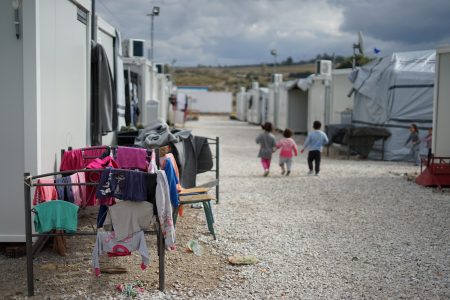Climate Adaptation Summit: NbS session & Adaptation Action Agenda launch

The global Climate Adaptation Summit was held on 25-26th January 2021. This was the first ever global summit focusing solely on climate change adaptation, and brought together local stakeholders and global leaders to share knowledge and discuss future action for adaptation and resilience.
When countries signed the Paris Agreement in 2015, they committed to balancing finance equally between climate change adaptation and mitigation. Nonetheless, only around 5% of global climate change finance is directed at adaptation. As the impacts of climate change on people worsen, it is critical that greater focus is placed on adaptation.
A major step forward to help make this a reality was the launch of the Adaptation Action Agenda during the Summit. This is a framework to organise and guide adaptation efforts globally. Parties from all backgrounds, sectors and regions can contribute adaptation initiatives to the platform over the next decade, creating a database of adaptation actions and enabling knowledge exchange between projects. Each adaptation action will be mapped against the SDGs, and overall progress will be tracked with an annual report.
NbS were one of 11 action themes at the summit, with a two-hour session focused on NbS hosted by Canada and Mexico. Speakers brought a range of perspectives on NbS including representatives from Indigenous Peoples, governments, finance organisations and NGOs.
Key messages from the NbS session:
- The great potential of NbS for climate change adaptation remains largely untapped. For example, only around 3% of companies use NbS in their adaptation strategies.
- We need coordinated action from the private and public sectors to accelerate nature-based adaptation. This includes a stronger focus on NbS in the Nationally Determined Contributions (NDCs) – only 17% of submitted NDCs have quantitative NbS targets.
- It is imperative that adaptation actions are targeted at the most vulnerable people; unabated climate change puts around 100 million people at risk of falling into poverty.
- Indigenous knowledge must be treated as integral to designing NbS, and the work done for nature by Indigenous people should be given greater recognition. Indigenous communities require greater financial support for e.g. investing in data gathering resources like technology, transport and workshops.
- NbS must have a rights-based, location-specific approach, respecting the rights and knowledge of Indigenous and local people. Culture needs to be held with greater respect, especially in locations where the natural world is central to culture.
- Collaboration between multiple stakeholders is crucial for the success of nature-based adaptation projects. For example, creating saltmarshes for coastal protection and wildlife conservation in the Netherlands involved leadership from local authorities, companies, communities, mayors and scientists.
- NbS for adaptation are currently under-financed. Only 1-2% of international climate change finance goes to NbS, and about 7% of total climate finance. Andrew Steer, President of the World Resources Institute, suggested that a major reason for this under-funding is that NbS are more complex than other climate projects such as sea walls and solar energy plants, raising challenges such as how to disperse money between multiple stakeholder groups.
- The Global Commission on Adaptation launched the NbS Action Track, with three goals for 2030 to increase uptake of NbS for adaptation:
- Increase understanding of the value of nature of adaptation, especially at the political level; build the business case for NbS. To achieve this, the Commission is establishing a vanguard group to showcase NbS initiatives and grow global support. By the end of 2021 the vanguard group will include five countries and 15 cities with ambitious projects, and five innovative financing models.
- Embed NbS for adaptation in planning, policies and operations. The Commission will provide technical support for countries and other actors through knowledge platforms, an advisory facility and development of engineering standards.
- Unlock investments for NbS. The Commission will identify and create financial opportunities, with a focus on public and blended finance. There is a need to ensure more finance reaches people working on the ground; this may require investors to work with greater levels of risk.
- Corporations in the finance and insurance sectors can help drive forward effective financing of NbS. For example, Swiss Re has pioneered insurance of coral reefs in Mexico and are aiming to replicate this elsewhere. Interactions with nature must be incorporated into every level of corporate decision making, including assessing risks and making investments.
- Investing in nature for climate change adaptation should benefit both nature and the economy. This has been proven by Costa Rica, where the economy has grown alongside stronger protection and restoration of tropical forest.
Find the recording of the NbS session of the Climate Adaptation Summit here.




